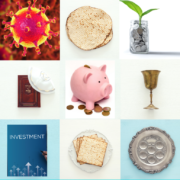YOUR INVESTMENTS: BOMBS BURSTING & MARKET VOLATILITY
Syria is using chemical weapons against civilians. Will the US attack or not? How far are the Russians prepared to go to defend Syrian strongman Assad? Will Israel get pulled into the conflict? Will the Federal Reserve start to “taper,” thus beginning the end of record-low interest rates? Throw into the mix emerging-market stocks and bonds getting slaughtered. Did I get your spirits up? Well REM may “feel fine” with the end of the world, but investors are skittish. Even I, in general an uber-optimist, must admit that things aren’t quite so rosy. My phone hasn’t stopped ringing from nervous investors who believe recent events are some kind of foreshadowing of Armageddon. As such, these clients want to know how they can potentially profit from “Armageddon.”
While there are many different solutions to this question, I would like to focus on three approaches to both protect your capital and even profit from a stock-market drop.
Volatility
Many professional investors like to look at market volatility as an indicator of future stock-market performance. The VIX Chicago Board Options Exchange (CBOE) Volatility Index, shows the market’s expectation of 30-day volatility.The VIX is a widely used measure of market risk and is often referred to as the “investor fear gauge.”Saiers Capital hedge-fund manager Nelson Saiers told Reuters: “If you buy crash protection, you most likely lose a small amount of money, but if there is a crash, you make a windfall.” As volatility measures dropped over 30 percent in the first half of the year, a continued tick up in investor fear could potentially send these products much higher.
According to Edward Szado, a research analyst for the Center for International Securities and Derivatives Markets at the University of Massachusetts: “Investable VIX products could have been used to provide some much-needed diversification during the crisis of 2008… The performance of markets in recent years suggests that VIX may spike upwards as the S&P 500 experiences large drops, leading one to believe that a long VIX position could provide significant diversification benefits to an equity portfolio.” There are a few new products structured to capitalize on movements in the VIX. Keep in mind that investing in volatility is very new for most investors and comes with risks. Investors need to take the time to understand how these products work.
Options
The classic way to cushion your portfolio against a market drop is by buying “insurance.” Buying put options as an insurance policy on your portfolio is like having home-owners insurance to protect your house against a fire. A “put” is an option contract giving the owner the right, but not the obligation, to sell a specified amount of an underlying security at a specified price within a specified time. A “put” option is basically a bet that the market will drop. If it does, the investor makes money; if wrong, the initial investment in the put is lost.
Cash is king
I am not the biggest believer in market timing, and trying to accurately predict a big fall is not the easiest thing in the world. As such, while the two above-mentioned methods to try and make money on a market drop may work for some, I tell most of my clients that if they are worried about a market fall, they should sell some stock and move into cash.The worst-case scenario would be that they are wrong and the market continues moving higher, in which case they wouldn’t participate in the upside. On the other hand, if the market does go down, they retain the value of their portfolio, and when the point comes that stocks are at an attractive valuation, they can move back into the market. Speak with your financial adviser to see if these approaches fit your risk profile and whether they have a place in your portfolio.
The information contained in this article reflects the opinion of the author and not necessarily the opinion of Portfolio Resources Group, Inc. or its affiliates.
Aaron Katsman is author of the book Retirement GPS: How to Navigate Your Way to A Secure Financial Future with Global Investing (McGraw-Hill), and is a licensed financial professional both in the United States and Israel, and helps people who open investment accounts in the United States. Securities are offered through Portfolio Resources Group, Inc. (www.prginc.net). Member FINRA, SIPC, MSRB, SIFMA. For more information, visit www.aaronkatsman.com, www.gpsinvestor.com or email aaron@lighthousecapital.co.il.








